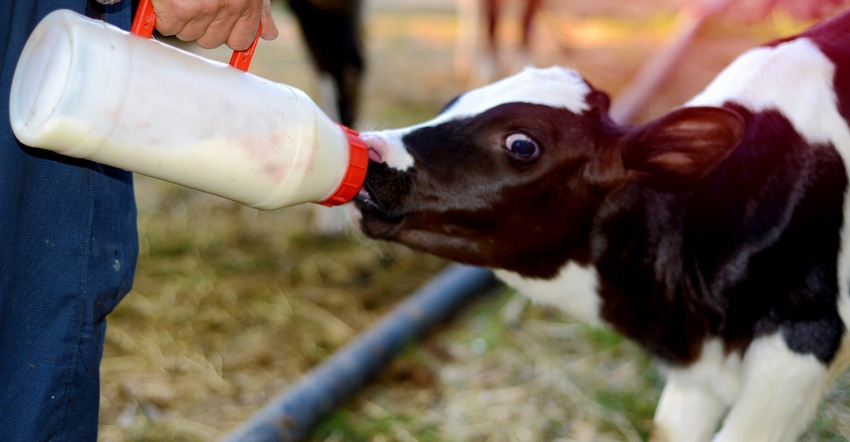
Dairy farmers need to adjust their animal care practices in the latest National Dairy Farmers Assuring Responsible Management (FARM) Animal Care 4.0 program.
The National Milk Producers Federation announced updates to animal care standards earlier this year. NMPF includes most of the dairy cooperatives in the U.S., with member cooperatives producing more than two-thirds of the country's milk supply.
Farmer feedback guided the fourth change in FARM animal welfare policies after a 16-month review process. The most notable changes going into effect Jan. 1 include:
More worker training. The latest policy revision requires annual documented training of anyone, including family members, with direct interaction with dairy animals. Previously, FARM only required training when an employee was hired. FARM training is available online.
Dehorn early. Calves with horns must be dehorned before 8 weeks of age with approved pain management.
Calf health at birth. The FARM Animal Care 4.0 program requires calves to receive colostrum within six hours of birth. Within three days of birth, calves must have access to water, as well as milk or a milk replacer.
Hard line on tail docking. The dairy industry quit the practice of tail docking several years ago, but if tail docking is found to have continued, immediate action must be taken to cease the practice.
Increase veterinary interaction. Standards that generate a Mandatory Corrective Action Plan, including persistent tail docking and others such as veterinarian engagement (veterinarian-client-patient-relationship), need to be addressed within nine months of the evaluation.
The update also requires an annual review of the herd health plan by the veterinarian of record.
Dealing with downer cows. Down cows and euthanasia face increased scrutiny under the new version, says Scott Poock, University of Missouri veterinarian. Employees who handle nonambulatory cows now will be required to learn protocols for moving and caring for cows while they are down. This includes isolation from other animals, protection from weather and access to feed and water, he says.
Not everyone can euthanize animals. Only trained individuals may euthanize animals, Poock says. The American Association of Bovine Practitioners and the American Veterinary Medical Association set the criteria and practice for euthanizing animals.
Help for farmers
Poock, along with MU Extension state dairy specialist Stacey Hamilton, can help dairy producers through the FARM Animal Care 4.0 program.
Poock received professional animal auditor certification to conduct third-party animal welfare audits to help dairy producers. Producers can contact him at [email protected] or Hamilton at [email protected] for more information.
FARM Animal Care is updated once every three years to ensure relevance to the industry's best management practices and scientific research related to on-farm animal care.
Farmers nationwide, dairy veterinarians, animal welfare experts and dairy industry leaders all are represented in drafting and approving new standards. The NMPF received 370 submissions that guided final decisions on the latest version.
The University of Missouri Extension and the National Milk Producers Federation contributed information for this article.
About the Author(s)
You May Also Like






